Nobody gets left behind
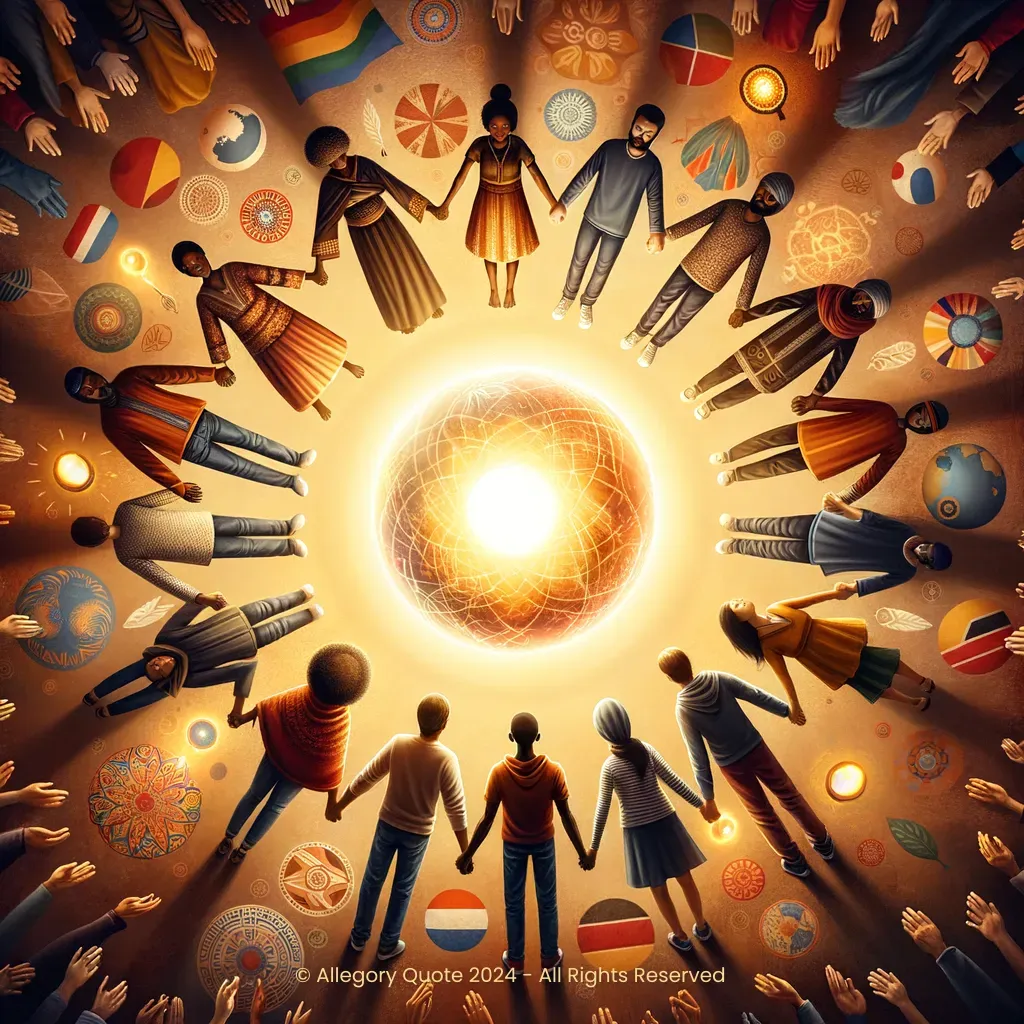
0
0
0
0
- Meaning
- Philosophically, this phrase speaks to values of solidarity, support, and mutual responsibility. It reflects a psychological understanding of belonging and loyalty, suggesting that in difficult times, we must look out for each other. Historically, this phrase can be seen as a reaction against the individualistic approach to success and survival—it encourages collective well-being over individual gain and emphasizes responsibility for one another, enhancing community bonds.
- Allegory
- The elements of the allegorical image represent the core theme of mutual support and inclusivity. The circle symbolizes unity and equality, with each person in the circle signifying individual contributions to the whole. The glowing light at the center represents hope and guidance, emphasizing that together we can overcome challenges and foster a nurtured environment. The colors chosen promote warmth and positivity, inviting viewers to feel a sense of resilience and belonging, reinforcing the phrase's foundational message that no one should be alone in their struggles.
- Applicability
- In personal life, this phrase advocates for inclusive behavior and support. It serves as a reminder to practice empathy and mental support in our relationships, ensuring that friends, family, or colleagues are not neglected during hard times. It encourages team dynamics where everyone contributes towards a common goal and highlights the importance of checking in on loved ones, leading to stronger, more resilient connections.
- Impact
- The impact of this phrase has been significant in military training, fostering teamwork and cohesion among soldiers. It has also inspired various movements outside the military, focusing on community support, mental health awareness, and inclusivity. The saying is often quoted in contexts where solidarity is a focal point, from classroom settings to corporate environments.
- Historical Context
- The phrase likely gained prominence within military and adventure contexts during the late 20th century, particularly around the time of the U.S. military engagements in Iraq and Afghanistan. It serves as a guiding principle for military leaders and has transcended into general use in various organizations focusing on teamwork and accountability.
- Criticisms
- Critics may argue that while the phrase promotes positive ideals, it can also lead to ignoring individual boundaries or the necessity of personal growth independent of others. There may be criticisms about the practicality of applying this mindset universally, as sometimes, it may be counterproductive for individuals who require space for self-improvement. Arguments against could center around the notion that complete loyalty may overlook personal needs and independence.
- Variations
- Variations of this phrase exist in other cultures and languages that emphasize a similar sense of collectivity and support, such as 'Together we stand, divided we fall,' highlighting the need for communal strength and mutual assistance in overcoming obstacles together.
-
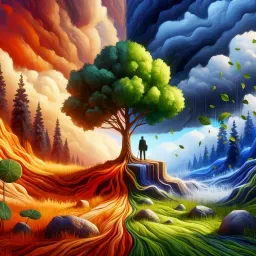
I’m bad, and that’s good. I will never be good, and that’s not bad.
-
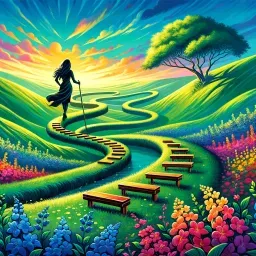
Keep moving forward.
-

Now that’s what I call a party!
-

I am Groot.
-

Float like a Cadillac, sting like a Beemer.
-
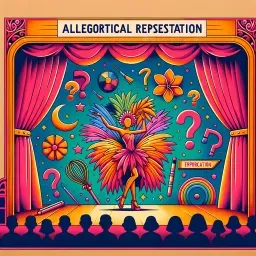
What do you want me to do, dress in drag and do the hula?
-
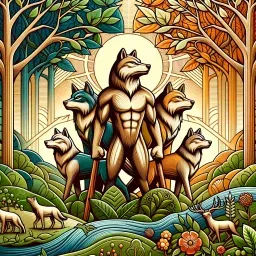
For the strength of the Pack is the Wolf, and the strength of the Wolf is the Pack.
-
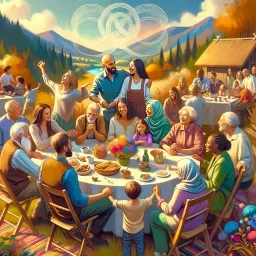
Ohana means family.
-
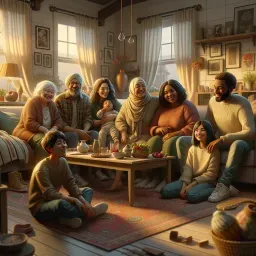
This is my family. I found it, all on my own. It’s little and broken, but still good. Yeah, still good.
-
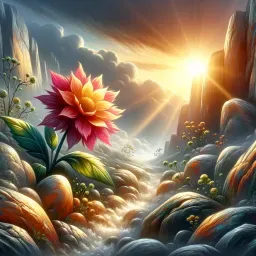
The flower that blooms in adversity is the most rare and beautiful of all.
-

It’s all part of the experience.
-

I'm the king of the world!
No Comments